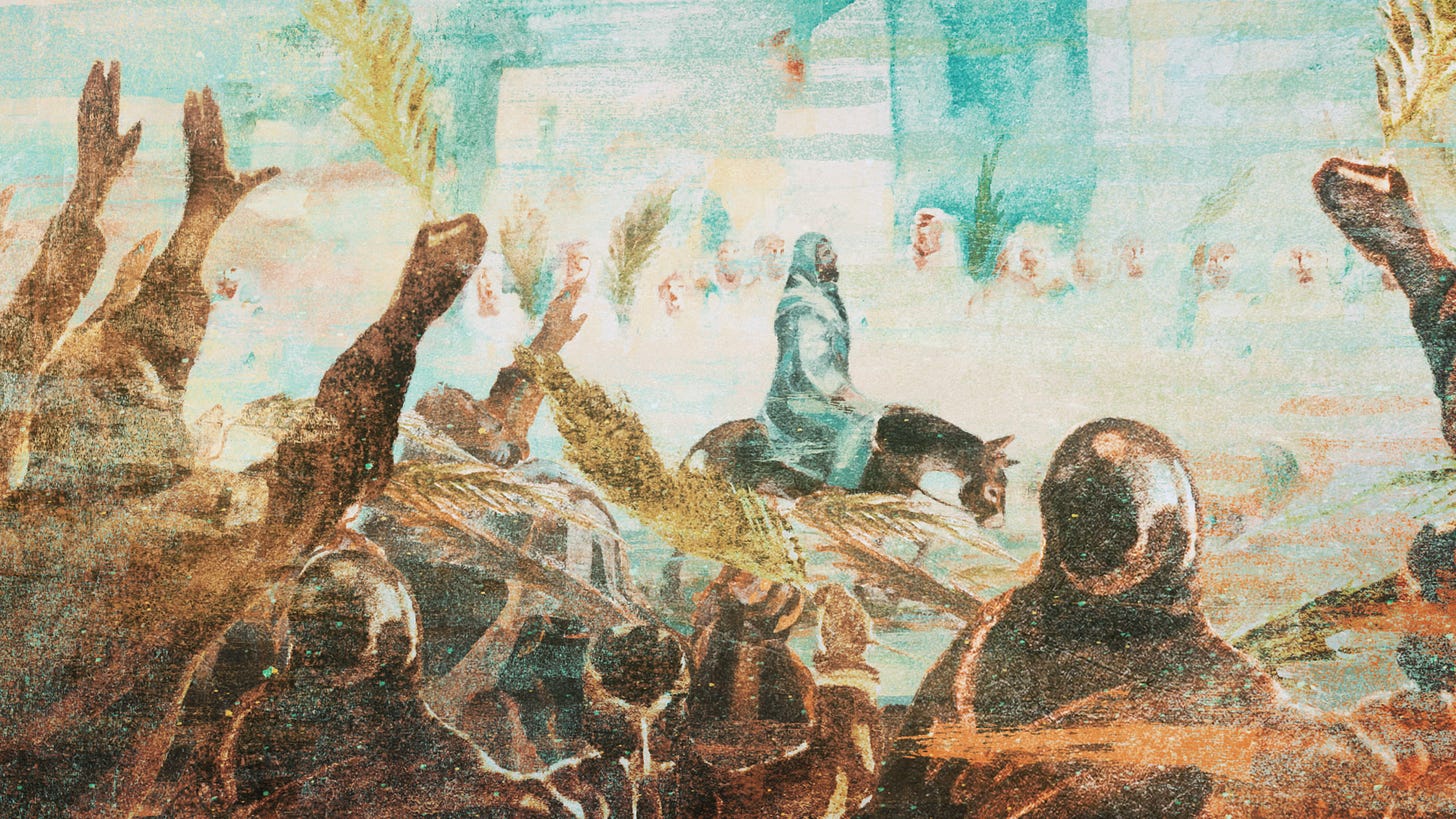A Reflection for Palm Sunday: Which Procession Will You Choose?
I wrote and shared this reflection on this Friday morning, April 11, 2025, in advance of Palm Sunday this weekend. The reflection is part of the work church’s daily digital devotional series for Lent this year. Next to Easter and Christmas, Palm Sunday is among my most treasured Christian holy days. I’ve grown into its spiritual, theological, and historical meaning (hat tip to John Dominic Crossan’s and Marcus Borg’s The Last Week, whose portrayal of Palm Sunday was introduced to me several years ago by Brian Murphy of Queer Theology). It also marks a liturgical anniversary for me, marking the Palm Sunday many years ago when I formally joined Wake Forest Baptist Church in Winston-Salem, N.C., as a teenager, finding for the first time a safe, affirming church home in my Baptist tradition.
Which Procession Will You Choose?
For nearly 40 days now, we’ve journeyed together on a wilderness road as we’ve explored notions of forgiveness, mercy, and love. Our journey is nearing its end. We are, as Jesus did on Palm Sunday, moving from the countryside and toward the city… toward the cross… toward the hope of resurrection on Easter Sunday.
We don’t yet know what awaits us as we move closer to Jerusalem. We join with the other disciples in astonishment and wonder as throngs of people line the road, praising Jesus and the kingdom of love, mercy, and forgiveness he has traveled the country proclaiming.
Perhaps we pause with some trepidation, too. We know that another leader is also making a very similar trip to Jerusalem ahead of Passover. Pontius Pilate and his troops are arriving from the west. Pilate enters the City of David seated on a dazzling stallion, flanked by sword-brandishing soldiers, in an intimidating display of raw power and Roman imperial might.
From the east, our Jesus — our humble country preacher born in a stable in Bethlehem and raised in the poor Galilean hills — approaches the city on a donkey, flanked by his disciples as widows, orphans, the poor, and the despised wave palm branches: a symbol of Roman power and triumph and an attribute of the military goddess Victory (Nike). Joyful, but treasonous, praises are lifted up to the son of David, king of Israel, bringing with him a new kingdom of peace, forgiveness, mercy, and love.
We don’t often think of Jesus as a protest leader. I’m not sure Jesus would have described himself that way. But the symbolic power and meaning of Jesus’ march into Jerusalem would have been plainly, provokingly apparent to every person in Jerusalem — Pilate included.
From the west came war cries, swords, and battle shields. From the east comes peace, love, and salvation. The dichotomy between these two visions of power and peace couldn’t be made more clear if one tried.
As we approach Jerusalem this Sunday, we will be confronted with important choices: Which procession will we join? To which kingdom will we pledge our allegiance, and will our loyalty last? Where will we be later during Holy Week — standing with John and Mary at the cross or hiding away in fear? Whose name will we be embracing — or denying? In whom will we be placing our hope?


